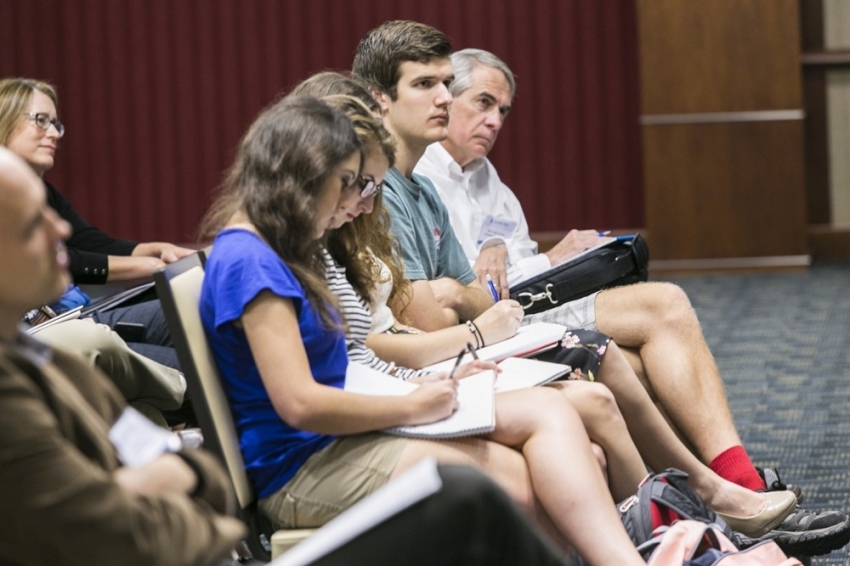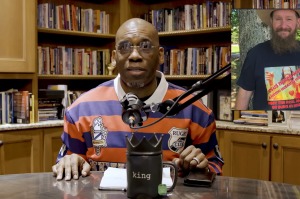The Next Big Science vs. Church Battle: Can Transhumanism and Christianity Co-Exist?

Can churches engage transhumanism, which may very well be the next big science vs. religion battle, positively or should they absolutely resist this movement, an academic institution in Alabama asked during a multi-day event focused on whether Christianity and Transhumanism could co-exist.
Samford University's Center for Science and Religion held the event, titled "Transhumanism and the Church," which took place from Sept. 24-26 and featured 27 presentations with approximately 120 attendees for the opening lecture alone.
Transhumanism is the theory that science and technology can be used to advance the evolution of human beings beyond current physical and mental limitations.
A spokesperson for Samford directed The Christian Post to statements made by Professor Steve Donaldson, program director in the Department of Mathematics and Computer Science and a senior fellow in Samford's Center for Science and Religion.
"[Transhumanism's] potential ramifications for the church are substantial. Can a climate be created in which churches and people of religious faith engage a transhumanist future positively or must the church resist? Is resistance futile?" stated Donaldson.
"Recognizing that differences of opinion on the merits of technological enhancement do not necessarily depend upon religious orientation, can the church actually lead the way toward common and beneficial perspectives?"
Donaldson also stated that he and the Center believe that "this is quite possibly the next big science and religion issue to face the church."
" … this conference was meant to constitute an early step in developing a coherent and forward-looking Christian approach to the relationship between transhumanist endeavors and the church," continued Donaldson.
Keynote speakers for the event included Donaldson; the Rev. Dr. Ron Cole-Turner of Pittsburgh Theological Seminary; Christina Bieber Lake, Ph.D. of Wheaton College; and Arizona State University Professor Joel Garreau.
Lectures on the conference schedule included: "Why Transhumanists Cannot Tell a Story to Save Their Lives," "Do Bigger Brains Mean Smaller Gods? Cognitive Science and Theological Perspectives on Transhumanism and the Church," and "Nietzsche's Power Ontology and Transhumanism: Or, Why Christians cannot be Transhumanists and remain Christian."
The "Transhumanism and the Church" conference was funded by The John Templeton Foundation and The Issachar Fund. According to its website, the Templeton Foundation seeks to be "a philanthropic catalyst for discoveries relating to the Big Questions of human purpose and ultimate reality."
"We support research on subjects ranging from complexity, evolution, and infinity to creativity, forgiveness, love, and free will," continued the Foundation's site. "We encourage civil, informed dialogue among scientists, philosophers, and theologians and between such experts and the public at large, for the purposes of definitional clarity and new insights."
The Rev. Dr. Christopher J. Benek, a Florida pastor who gave one of the presentations during a concurrent session at the conference, told CP that he believed the conference was "particularly important because church leaders and laity need to become educated on these issues immediately."
"Such an education will enable Christians to distinguish between tyrannical transhumanism that advances Nietzschean principles verses Christian Transhumanism that seeks to discover what it may mean to become more human across the scope of what it means to be creatures made in the image of God," said Rev. Benek.
"The conference did an excellent job of addressing all sides of these issues in order to give the participants the information that they needed to discern how God might be calling them to engage advancing technologies in the future."
Benek also told CP that he believed conferences like Samford's "will become more and more prevalent throughout college campuses in the future."
"The impact of such advancements on young adults will be that young Christians who feel called to pursuits in science won't have to feel like they have to sacrifice their faith in order to pursue their vocational goals," continued Benek.
"It is important that young people have opportunities to think critically as to how advancing technologies will shape humanity's future."
Samford intends to post the conference lectures online free of charge at the Center's webpage within the next few weeks.



























